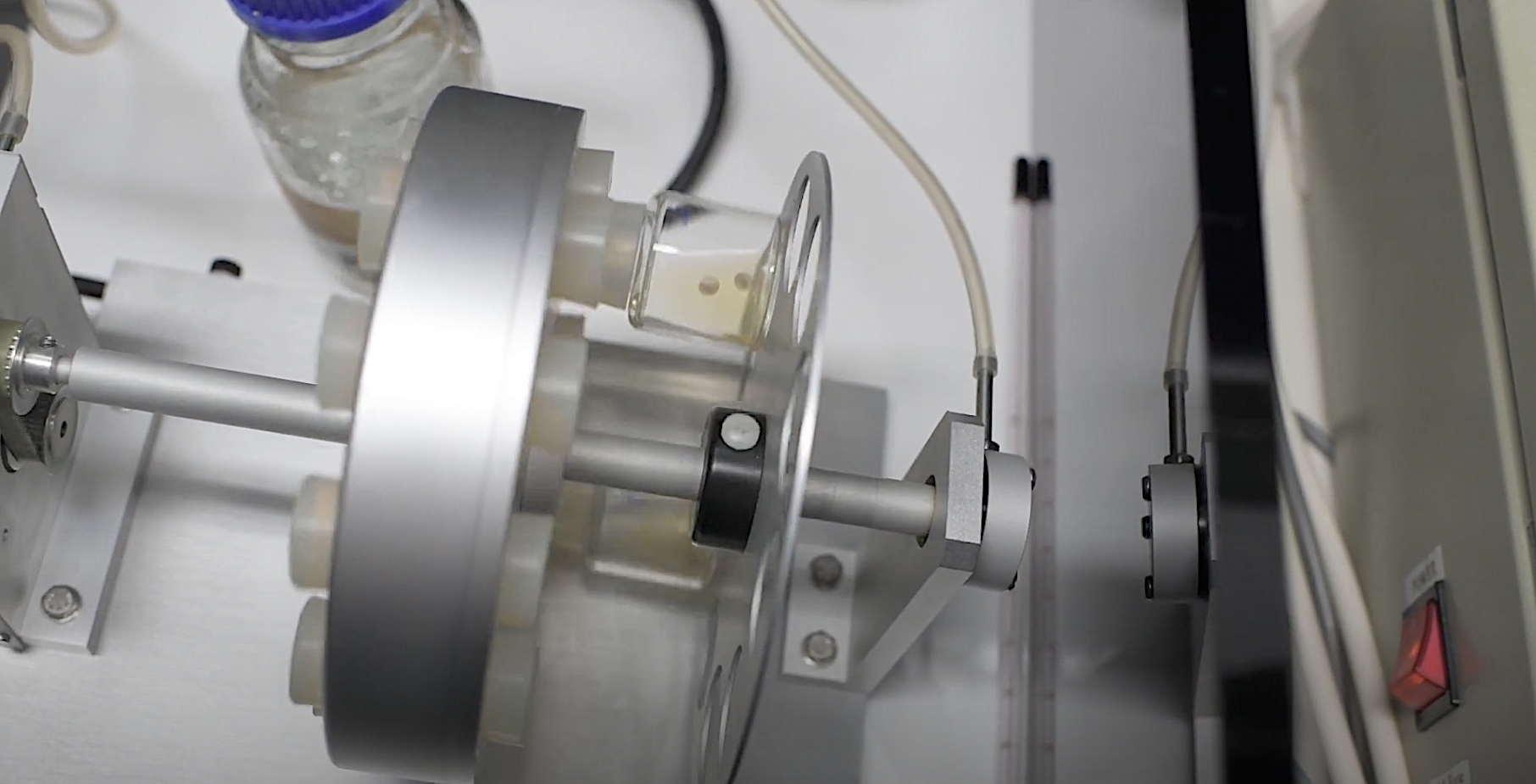Scientists grow mice embryos to half-term in glass artificial uterus


A free daily email with the biggest news stories of the day – and the best features from TheWeek.com
You are now subscribed
Your newsletter sign-up was successful
Scientists in Israel reported Wednesday in the journal Nature that they have successfully grown apparently normal mouse embryos in an artificial uterus, marking the first time a mammal has been nurtured to half-term outside the womb. Dr. Jacob Hanna and his colleagues at the Weizmann Institute of Science described removing a fertilized egg at five days of gestation and watching it develop for another six days in glass vials inside a special rotating incubator Hanna spent seven years developing.

Hanna's "artificial womb may allow researchers to learn more about why pregnancies end in miscarriages or why fertilized eggs fail to implant," The New York Times reports. "It opens a new window onto how gene mutations or deletions affect fetal development. Researchers may be able to watch individual cells migrate to their ultimate destinations," unlocking mysteries about how a single cell develops into the trillions of specific cell types that make up a living creature.
Hanna told the Times that since submitting the paper to Nature, he and his team have grown mouse embryos from right after fertilization to the 11-day mark, at which point the embryos need blood supply typically provided by the placenta to continue developing. Full gestation for a mouse embryos is about 20 days. When Hanna compared his 11-day-old embryos to those from a mouse uterus, they were identical.
The Week
Escape your echo chamber. Get the facts behind the news, plus analysis from multiple perspectives.

Sign up for The Week's Free Newsletters
From our morning news briefing to a weekly Good News Newsletter, get the best of The Week delivered directly to your inbox.
From our morning news briefing to a weekly Good News Newsletter, get the best of The Week delivered directly to your inbox.
Hanna is now working on ways to adapt his artificial womb so mice embryos can grow to term, possibly by adding an artificial blood supply or using an enriched nutrient solution, he told the Times. Other researchers have found ways to develop mouse embryos from fibroblasts, or connective tissue cells, getting rid of the need for a fertilized egg. Two other studies in Wednesday's Nature described attempts to use the same technique to develop human embryos.
Putting all these developments together, "it is not unreasonable that we might have the capacity to develop a human embryo from fertilization to birth entirely outside the uterus," Paul Tesar, a developmental biologist at Case Western Reserve University School of Medicine, told the Times. "Whether that is appropriate is a question for ethicists, regulators, and society."
A free daily email with the biggest news stories of the day – and the best features from TheWeek.com
Peter has worked as a news and culture writer and editor at The Week since the site's launch in 2008. He covers politics, world affairs, religion and cultural currents. His journalism career began as a copy editor at a financial newswire and has included editorial positions at The New York Times Magazine, Facts on File, and Oregon State University.
-
 How the FCC’s ‘equal time’ rule works
How the FCC’s ‘equal time’ rule worksIn the Spotlight The law is at the heart of the Colbert-CBS conflict
-
 What is the endgame in the DHS shutdown?
What is the endgame in the DHS shutdown?Today’s Big Question Democrats want to rein in ICE’s immigration crackdown
-
 ‘Poor time management isn’t just an inconvenience’
‘Poor time management isn’t just an inconvenience’Instant Opinion Opinion, comment and editorials of the day
-
 ‘One Battle After Another’ wins Critics Choice honors
‘One Battle After Another’ wins Critics Choice honorsSpeed Read Paul Thomas Anderson’s latest film, which stars Leonardo DiCaprio, won best picture at the 31st Critics Choice Awards
-
 Son arrested over killing of Rob and Michele Reiner
Son arrested over killing of Rob and Michele ReinerSpeed Read Nick, the 32-year-old son of Hollywood director Rob Reiner, has been booked for the murder of his parents
-
 Rob Reiner, wife dead in ‘apparent homicide’
Rob Reiner, wife dead in ‘apparent homicide’speed read The Reiners, found in their Los Angeles home, ‘had injuries consistent with being stabbed’
-
 Hungary’s Krasznahorkai wins Nobel for literature
Hungary’s Krasznahorkai wins Nobel for literatureSpeed Read László Krasznahorkai is the author of acclaimed novels like ‘The Melancholy of Resistance’ and ‘Satantango’
-
 Primatologist Jane Goodall dies at 91
Primatologist Jane Goodall dies at 91Speed Read She rose to fame following her groundbreaking field research with chimpanzees
-
 Florida erases rainbow crosswalk at Pulse nightclub
Florida erases rainbow crosswalk at Pulse nightclubSpeed Read The colorful crosswalk was outside the former LGBTQ nightclub where 49 people were killed in a 2016 shooting
-
 Trump says Smithsonian too focused on slavery's ills
Trump says Smithsonian too focused on slavery's illsSpeed Read The president would prefer the museum to highlight 'success,' 'brightness' and 'the future'
-
 Trump to host Kennedy Honors for Kiss, Stallone
Trump to host Kennedy Honors for Kiss, StalloneSpeed Read Actor Sylvester Stallone and the glam-rock band Kiss were among those named as this year's inductees
